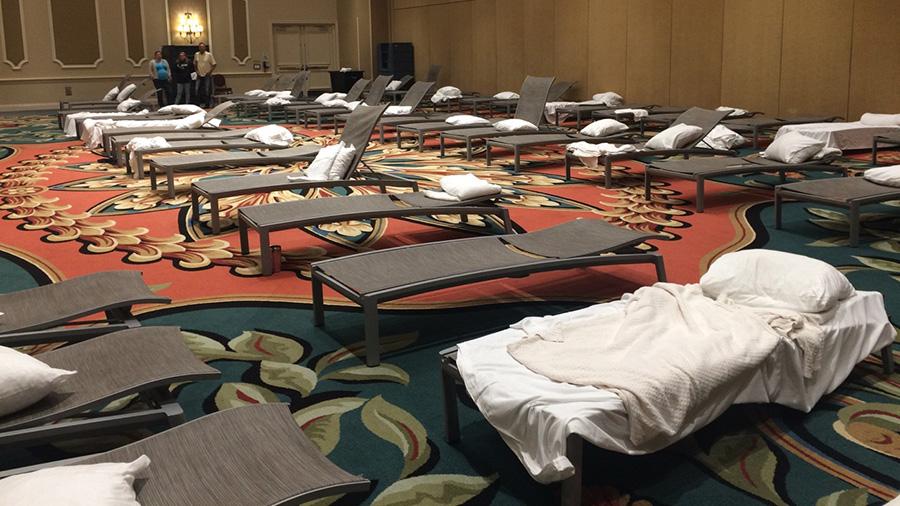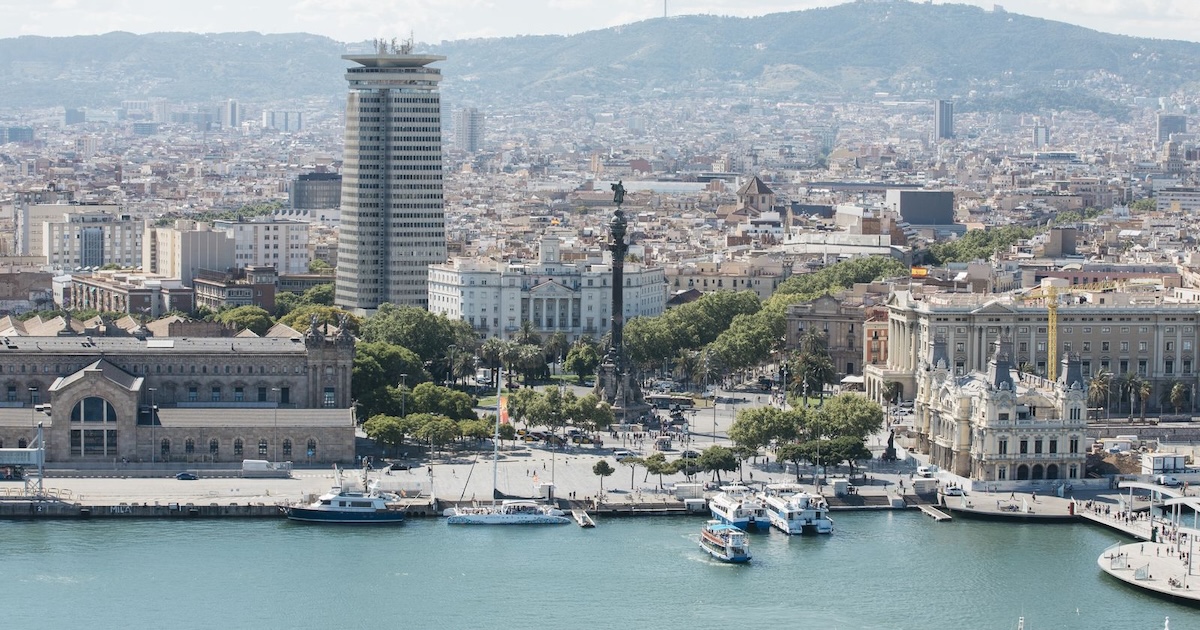Photo courtesy of Rosen Hotels & Resorts
When virtually every credible meteorologist was predicting on Saturday that the most powerful Atlantic hurricane ever recorded was bearing down on the Florida peninsula as a major Category 5 storm and would visit its wrath on the entire state, the specter of what it could do to the tourism and meeting industry in the Sunshine State was quite dire. And on Sunday and Monday, when it did in fact hit just about every city in the state, it did not appear that things would be good when the rains stopped and the sun re-appeared.
But fortunately, those dire expectations did not become reality, at least not in most destinations.
For example, the conditions on the ground Tuesday in Orlando, the largest convention city in Florida, were squarely at the top of the “dodged a bullet” scale. “We were very, very fortunate. Things did not turn out as bad as we expected,” said Harris Rosen, founder and CEO of Rosen Hotels, the largest privately owned hotel group in Orlando, with seven hotel properties collectively offering 6,338 guest rooms. “The winds were gusting up to 100 miles per hour when Irma came to Orlando, but the damage to our hotels was minimal and they were operating throughout the storm and are fully operating now.”
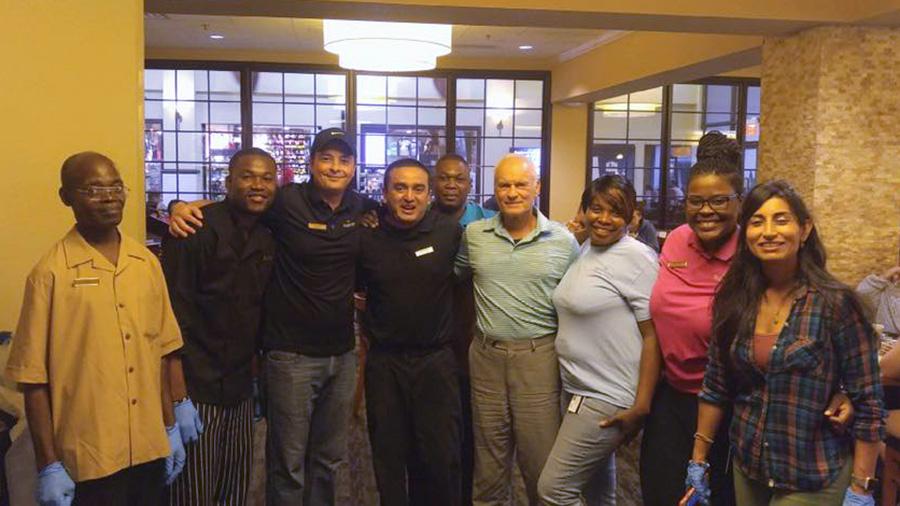
Photo: Harris Rosen (fourth from right) and staff.
Rosen said that two large conferences would be coming to his hotels by Thursday of this week.
He also said that in talking to other hoteliers in the city, he has learned that most of the damage to their properties is minor as well.
“There is no reason not to come to Orlando right now,” Rosen said. “The airport is open today; the streets are clear; Disney World is open. September is a wonderful month to come to Orlando.”
He said during a phone interview on Tuesday that he could look out the window of his office and see a packed swimming pool, and when driving down International Drive, the main hotel corridor of Orlando, he could see the same throngs of visitors that one would see if a hurricane had not come at all. Orlando, however, along with Tampa, represented the best case scenarios in Florida. The southern part of the state—both east and west coasts, fared worse.
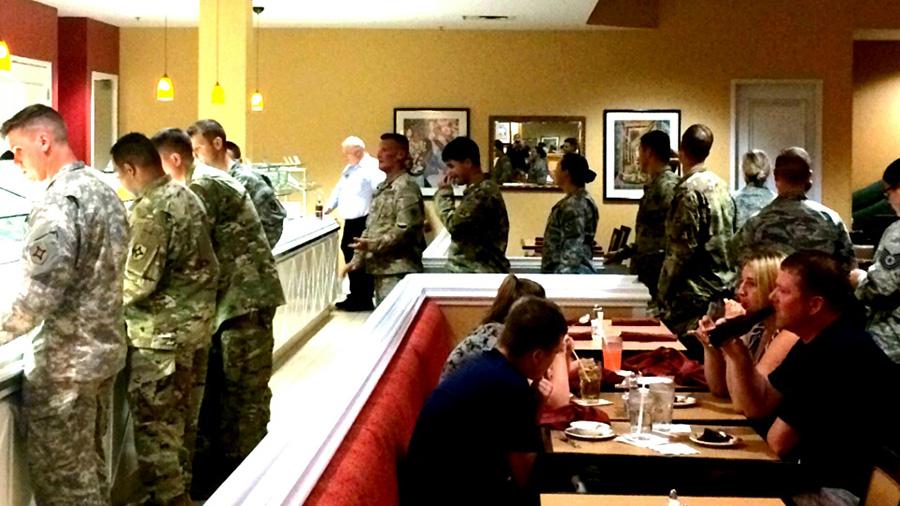
The Florida Keys, where Irma first made landfall as a Category 4 storm, were massively damaged.
The Federal Emergency Management Agency (FEMA) has estimated that 25 percent of all structures in the Keys were destroyed and 65 percent were damaged.
“The Keys may be out of commission, certainly in terms of the luxury hotels down there, for a long, long time,” said Miami-based planner Karl Nybergh, meeting consultant with Conference Resources and Solutions.
Miami, which was hit with 100-mile-per hour gusts and had flooding in the Brickell financial district, downtown and Miami Beach, suffered hotel damage that is still to be completely determined. Downed power lines prevented completely free travel on the streets through Tuesday, and some hotels suffered partial flooding.
Never the less, Nybergh expected some big hotels in Miami to be up and running in the Thursday and Friday range this week, if not necessarily hosting group events. Power outages around the Miami metro area were still a problem on Tuesday. Twenty miles up the coast in Fort Lauderdale, the CVB was reporting that the tourism infrastructure was basically unscathed, although power outages were likely to keep some beachfront hotels from reopening until this weekend.
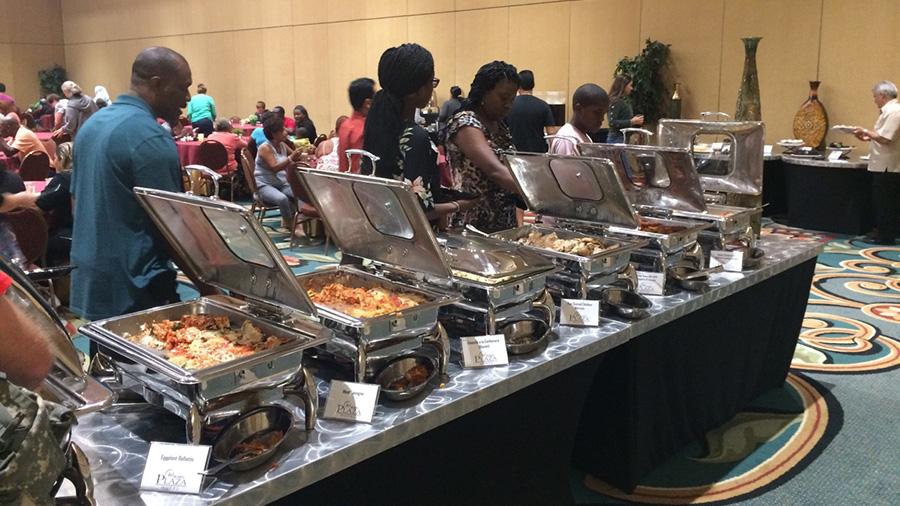
Both Miami International Airport and Fort Lauderdale International re-opened Tuesday, as did Tampa International. The Pensacola and Jacksonville airports did not close.
On Tuesday, Santiago C. Corrada, president and CEO of Visit Tampa Bay, issued this upbeat assessment: “Tampa Bay was fortunate to avoid a direct hit by Hurricane Irma. We stand ready to help other areas that were not as fortunate. At the moment, Visit Tampa Bay is working with our local industry partners to assess the storm’s impact on this region. Currently, damage appears to be minimal—all hotels appear to be fully operational and all major attractions are expected to be reopened today or tomorrow. Life is returning to normal.”
Conditions in other popular Florida tourism cities, including Jacksonville, Fort Myers, Naples and Marco Island, all of which suffered significant flooding and/or wind damage, were still being assessed on Tuesday. More information will be available later this week, but a good rule to follow if you have an event booking in the near future anywhere in Florida, is to call the hotel where your group is booked and ask about conditions in the destination.
